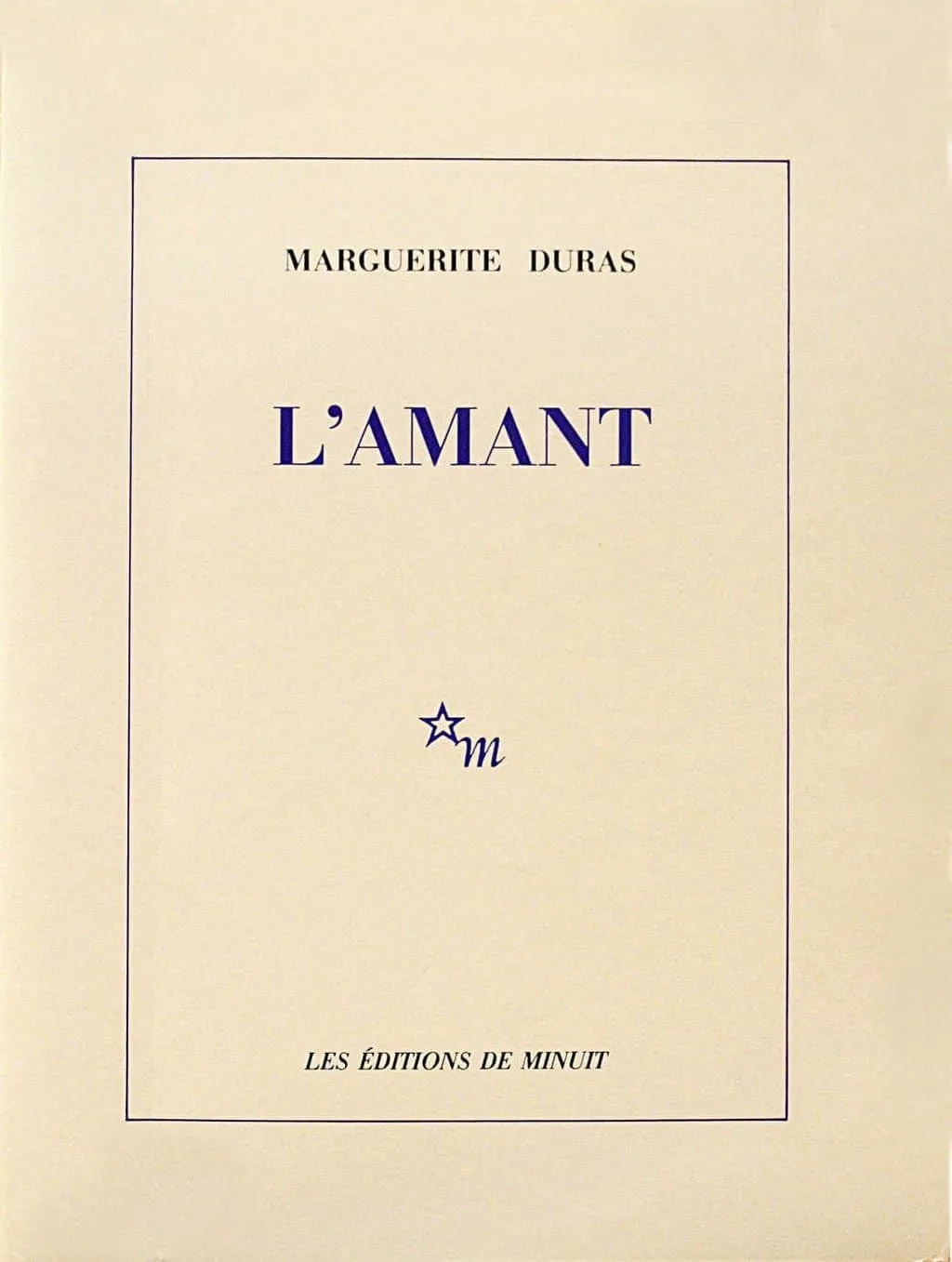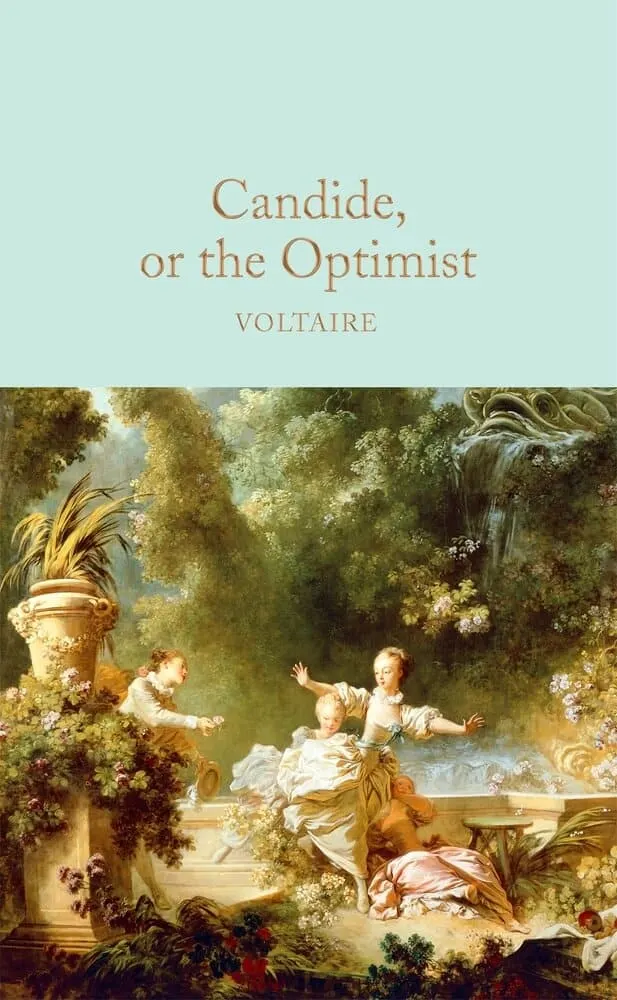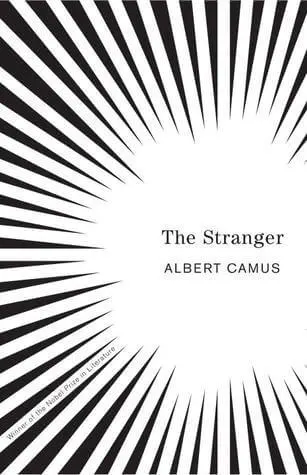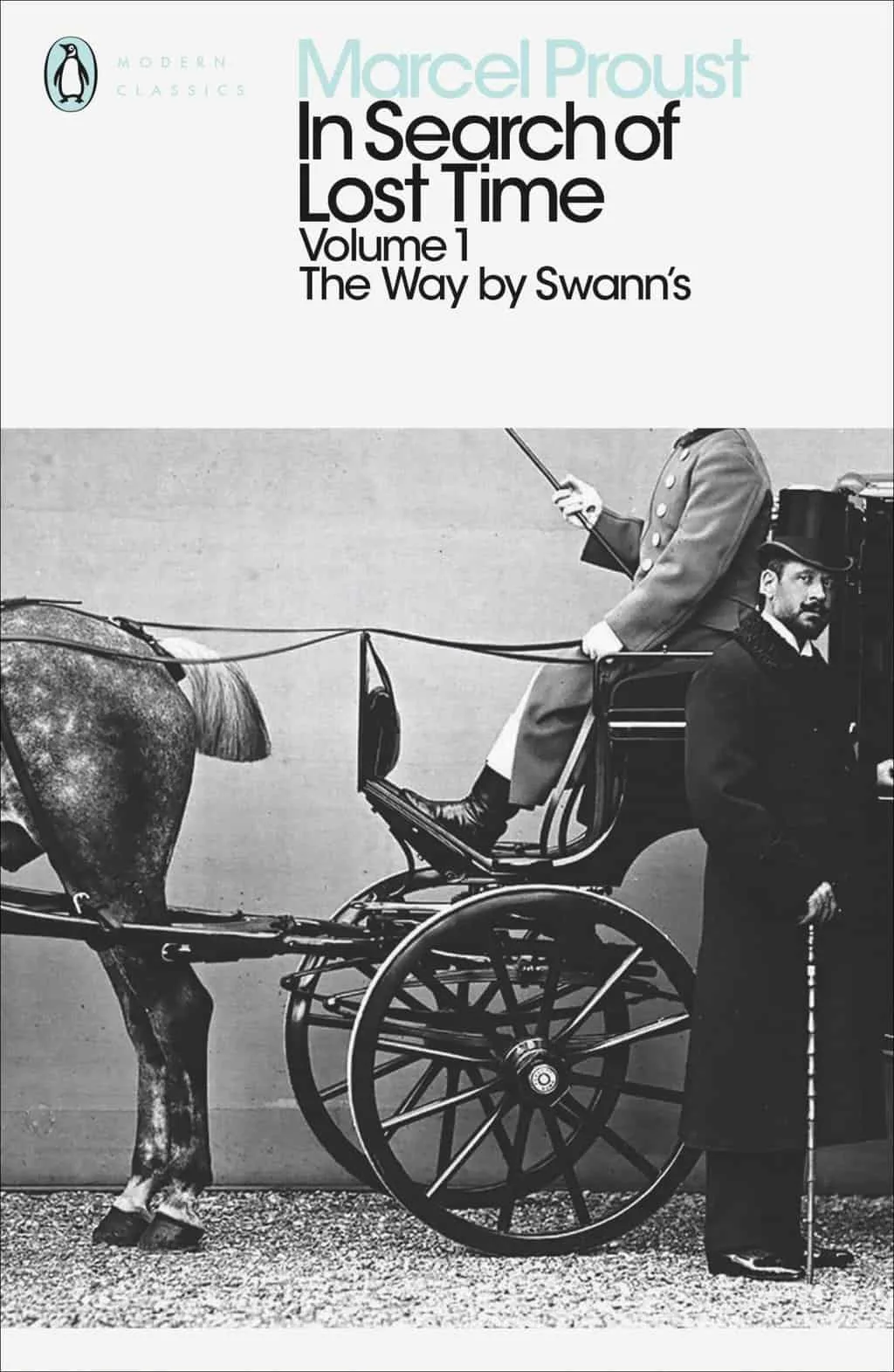Looking for a list of the best French books of all time? I’ve featured some of the best French literature and best French writers to get your teeth into if you want to know which really good French books to read.

I fell in love with French literature many years ago and went on to study French at Oxford University for four years.
The French course at Oxford is heavily literature based so I read hundreds of French books during my time there and that includes pretty much all of the best French classic books from the 16th to the 20th century.
It’s hard to pick favourites from all the works that I read during this time but here are 13 French classics that you absolutely must pick up as are the crème de la crème of French literature.
The majority of them are French novels published in the 19th century, which is what I consider to be the golden age of French literature.
This was a fascinating period of French history and there were huge social, cultural and political changes. Check out my top picks below.
Amazing book deals you don’t want to miss
Blackwells: Free worldwide delivery on every order
Audible: Get 1 audiobook free plus all Audible originals
Kindle: Save up to 80% on Kindle book deals
Prime Reading: Unlimited access to a rotating catalogue of e-books
Best French Novels of All Time

The Lover by Marguerite Duras
Marguerite Duras is one of the best and most famous female French writers. I’m such a big fan of her work that I dedicated my dissertation to the mother-daughter relationships portrayed in her novels!
The Lover is Duras’ most famous work and is (rather disturbingly) autobiographical. It’s set in French colonial Vietnam and is told from the perspective of an anonymous 15-year-old girl who becomes involved with a much older Chinese businessman.
As such it has often been compared to Nabokov’s Lolita and even described as the Anti-Lolita.
The protagonist is the daughter of a single mother who is obsessed with money, status and her position in society. She uses her daughter and her relationship with this weather businessman for her own advantage.
It’s so, so messed up but a thoroughly enthralling read.
If you want to dive into modern French literature books then Duras is one of my all-time favourite French authors and this is a great place to start.
The majority of the classic French books on this list are set in Metropolitan France so the insight into French colonial Vietnam here set this novel apart from the rest.
RELATED: 13 Controversial Books Like Lolita by Nabokov
Buy The Lover: Amazon | Waterstones | Blackwells

Madame Bovary by Gustave Flaubert
Madame Bovary is one of the most famous French novels ever written. It was the debut novel of Gustave Flaubert and published in the 1850s.
The lead character, Madame Bovary, is a woman who always wants more – she’s read too many French romance novels and has an idealised vision of what her life and marriage will be like.
She’s constantly striving for a higher social status, for grand romantic gestures, for beautiful objects and more. She hopes that this is what her marriage to Charles Bovary will give her but he falls flat of expectations and consequently so does her life.
We watch Emma Bovary’s character develop as her attempt to fulfil her unrealistic expectations of life become increasingly desperate. I found her to be a thoroughly unlikeable character but she represents a type that was prevalent then and is prevalent now.
This is one of the greatest French novels and one that anyone wanting to dive into French literature should pick up. Flaubert is seen to be one of the most influential French novelists, and indeed one of the most influential writers ever, and his novel gives a fascinating insight into nineteenth-century French society.
Realism and romanticism are mixed together in this novel, which may be of interest to those more attuned to literary style rather than plot.
Buy Madame Bovary: Amazon | Waterstones | Blackwells

Candide by Voltaire
Candide is sort of like the adult version of The Little Prince. It’s a picaresque novel by one of the most influential French philosophers, Voltaire.
On the surface, it is a tale of adventure, discovery, even romance, but really it all is a serious commentary on French society in the eighteenth century.
Short tales, such as Candide, became a serious literary genre during this period as writers masked their didactic and philosophical intentions behind the short story form.
Voltaire uses a traveller as his protagonist to compare two different worlds and allow for “innocent” questioning about unfamiliar ideas.
Readers can choose to enjoy this as a fun short story, or dig deeper and uncover Voltaire’s serious criticism of society at large, which are still relevant and funny today.
This is one of the shortest books on the list and a great place to start if you’re unsure about French literature classics.
RELATED: 13 Books Like The Little Prince that Adults NEED to Read
Buy Candide: Amazon | Waterstones | Blackwells

The Stranger by Albert Camus
A staple part of the French curriculum in schools, The Stranger is one of the best modern French novels and one of the most famous French books in the English-speaking world.
Camus’ short story is a philosophical tale about a man whose very ordinary life is disrupted by the death of his mother.
He is not particularly affected by her death, he doesn’t even cry, but society judges him for this lack of reaction and this later decides his fate.
This is Camus’ best example of the philosophy of the absurd. In Camus’ own words, the hero of the book is condemned because he does not play the game.
He is a “stranger” to society and Camus uses him to criticise social norms and also the members of society who ostracise those who do not follow them.
It’s the sort of novel you should read more than once to catch all the nuances but it is 100% worth it. It’s short but full of questions that will challenge the way you view society and justice.
Buy The Stranger: Amazon | Waterstones | Blackwells

Dangerous Liaisons by Choderos de Laclos
You may already know of Dangerous Liaisons from the popular 1988 film of the same name. It has a star-studded cast including John Malcovich Glenn Close, Michelle Pfeiffer, Peter Capaldi, Keanu Reeves and Uma Thurman.
There was another popular 1999 adaptation entitled Cruel Intentions which starred Sarah Michelle Gellar and Reese Witherspoon. As always, however, the book is better than the movie!
Dangerous Liaisons is a tale of decadence and debauchery amongst the French aristocracy. It is set a few years before the French Revolution and is all about seduction and playing games to abate their boredom.
The two main characters, former lovers, pick unsuspecting, innocent targets and challenge each other to seduce them. What starts as a manipulative game ends with more serious consequences than either could have predicted.
Read this for the d-r-a-m-a!
Buy Dangerous Liaisons: Amazon | Waterstones | Blackwells

The Second Sex by Simone de Beauvoir
The Second Sex, Le Deuxième Sexe, is seen as the Bible of modern Western feminism. Translations have been fraught with issues but The Second Sex continues to be read by generations of women from the UK and US.
It’s a non-fiction title, written in two volumes, in which Beauvoir picks apart the treatment of women throughout history.
It’s quite a large tome but well worth a read for the vast breadth of angles and periods of history that it covers. She takes us from Ancient Greece and Rome to the twentieth century and explores woman’s place in history, in the home, in literature and more.
Some parts are quite abstract whilst others are born out of de Beauvoir’s research into science, biology and the female body.
Progress has undeniably been made over the last century but the fact that a text such as this is still as modern and relevant today as it was when it was published in 1949 demonstrates how far we have to go.
This is essential reading for anyone who calls themselves a feminist and is fighting for gender equality.
Buy The Second Sex: Amazon | Waterstones | Blackwells

The Immoralist by André Gide
The Immoralist examines the case of a man with a wife and child, means and career, who is caught up in a complicated network of overlapping relations and responsibilities.
Whilst on his honeymoon in North Africa, the protagonist Michel finds himself attracted to young Arab boys.
He comes to see his whole life as a hypocritical sham and, in pursuit of his true, authentic, homosexual self, abandons everything.
This was, potentially at least, the central drama of Gide’s own life so it comes as no surprise that many readers identify him with his hero.
The Immoralist is a simple, but deeply ironic (and controversial!), tale in which the first-person narrator reveals the moral ambiguities of life through seemingly innocuous reminiscences.
It is the story of the process by which Michel, at once thoughtful and thoughtless, discovers himself, at the cost of his marriage and the life of his wife.
This story is an important read because it observes the relationships between the citizens of France and of French Algeria, a crucial part of recent French history.
The style is also important as Gide uses the first person short story as an attempt to distract from the links to his own life, stating that he is writing the mind of his character and not himself.
This was significant in the early stages of the twentieth century when openly writing about and exploring homosexuality was taboo.
Buy The Immoralist: Amazon | Waterstones | Blackwells

The Flowers of Evil by Charles Baudelaire
If you’re a fan of T.S. Eliot then Baudelaire is another poet you’ll want to add to your bookshelf. Baudelaire was one of the most influential French poets, inspiring the likes of Verlaine, Rimbaud and Mallarmé.
His most famous work is Les Fleurs du Mal or The Flowers of Evil, a collection of poems about the changes Paris underwent due to industrialisation in the nineteenth century.
Baudelaire insisted that The Flowers of Evil was not just a collection of isolated poems but a deliberately arranged sequence.
The movement through his collection is threefold: the reaching out towards a longed-for ecstasy, the torment of failure to find perfection, and finally the assertion of the bitter, limited but intense worth that remains.
He depicts the banality of society throughout his work in an honest and poetic, which makes it well worth reading.
Buy The Flowers of Evil: Amazon | Waterstones | Blackwells

The Red and the Black by Stendhal
Stendhal addresses many social issues in his novels, including politics, the church, French provincial life, the role of women and social class.
Many popular writers addressed these themes at the time, but Stendhal stands out from his contemporaries by focusing on the psychology of his protagonists.
As such, he is considered by many as the creator of the psychological novel.
In The Red and the Black, we follow the life of Julien Sorel, a young man of humble origins trying to rise above his upbringing. He has grand aspirations and soon realises that the only way to move up the social ranks is to adopt the hypocrisy rife amongst the materialistic aristocracy.
However, whilst striving to make himself important, he actually ends up as a pawn of the influential men around him. This satirical portrayal of French society has been called a novel ahead of its time and needs to make its way onto your TBR pile.
What I find particularly interesting in Stendhal’s work is his treatment of women. Stendhal was a keen critic of the social and emotional subjugation of women and it is evident from his novels that he was an author who showed genuine empathy towards women.
The Red and the Black is a harsh criticism of the subordinate position of women in society and feminist writer and Simone de Beauvoir spoke highly of Stendhal in her work, The Second Sex (above).
Buy The Red and the Black: Amazon | Waterstones | Blackwells

Père Goriot by Honoré de Balzac
Political turmoil characterised nineteenth-century France and so historical and political change play a major role in the majority of the significant literary works produced in France at this time.
Honoré de Balzac was a particularly notable writer at the time, often referred to as one of the founders of literary realism. His novels have been praised again and again for his representation of society after the fall of Napoleon Bonaparte in 1815.
Père Goriot is widely considered to be Balzac’s most important novel and the story weaves together three separate tales. This includes that of Eugene de Rastignac, a young man starting out on life and learning how to make his way in Parisian society.
Then there’s Vautrin, a forty-year-old criminal. Finally, there’s the titular character, Père Goriot, an old man dying in poverty, unloved and unaided by his two daughters to whom he has given everything.
Make no mistake, this is a depressing tale. Balzac paints a bleak picture of French society and Old Goriot’s life is as miserable as can be. However, it’s well worth reading because of the detailed social critique, descriptions of life in France and French history.
Buy Père Goriot: Amazon | Waterstones | Blackwells

La Bête Humaine by Emile Zola
La Bête Humaine, or The Beast Within, is set in the nineteenth century like many other novels on this list, but Zola’s approach and style set this psychological thriller apart from the rest.
It forms part of the 20-novel Rougon-Macquart series, which includes Zola’s other masterpieces: Germinal and L’Assommoir.
This novel is tense and dark, following Lantier, the titular “human beast”, who has a hereditary madness. He only feels aroused when thinking about murdering women and his long long-held compulsion to murder manifests on a train ride from Paris to Le Havre.
RELATED: 28 Best Books Set in Paris
This is one of Zola’s most violent novels and he took a great deal of inspiration from Jack the Ripper so if you like dark and twisted stories of that nature then you’ll love this.
There’s a lot on French politics, industrialisation and the legal system too but Zola’s depiction of the criminal mind is what will draw you in.
Buy La Bête Humaine: Amazon | Waterstones | Blackwells

Indiana by George Sand
George Sand is not a name I hear often when English readers speak of French literature but, in the 19th century, she was considered one of the most popular writers of her time. In England, she was even more popular than Victor Hugo and Balzac!
George Sand is, of course, a man’s name and was the pen name she wrote under. Her real name was Amantine Lucile Aurore Dupin and she was a phenomenal lady who refused to observe the social constraints placed upon women during her life.
She wore men’s clothes without permission at a time when women needed a permit to wear men’s clothes (!), smoked tobacco in public and wrote subversive novels.
Indiana was the first novel she wrote under the pseudonym “George Sand” and it was using this name that she found notoriety.
It deals with many typical themes of nineteenth-century writing: a critique of social norms, a longing for romance, adultery, class, the French Empire and more.
The crucial difference is that she is writing from the female perspective, which is significant because not many female voices were heard or acknowledged at the time.
Her work is characterised by idealism but she was also a romantic, a realist, a political and a feminist writer. It’s my favourite of her works and one that you must read if you’re interested in feminist literature!
Buy Indiana: Amazon | Waterstones | Blackwells

The Misanthrope by Molière
Molière is basically French Shakespeare. He wrote a large number of plays in the seventeenth century, which are still hugely popular in France today.
He is known for his satire of society but alarmingly many of his character assessments are just as funny and relevant today as they were 400 years ago.
In fact, his character assessments are so astute that they pissed off many people (the truth hurts!) and a number of his plays were banned.
The Misanthrope is one of his most celebrated plays and pokes fun at the flaws of humankind. It concerns the French aristocracy and our main character, Alceste, is a misanthrope, someone who avoids and dislikes human society.
He refuses to play nice in society and conform to their meaningless social conventions, which makes him incredibly unpopular. Molière uses him to criticise the problems abundant in society at the time but criticises him as well. Nobody can escape the critical eye of Molière!
I know reading a play isn’t the same as seeing it and definitely won’t be for everyone. However, Molière’s hugely funny plays are very enjoyable reads and you’re going to love his work if you’re a fan of satire.
Buy The Misanthrope: Amazon | Waterstones | Blackwells

In Search of Lost Time by Marcel Proust
In Search of Lost Time by Proust is one of the most famous works of French literature with the New York Review of Books even naming it “the most respected novel of the twentieth century”.
Written by Marcel Proust, this story is told in seven volumes (it’s pretty hefty!) and concerns the passing of time and the theme of memory.
It’s the story of Proust’s own life as it begins with a narrator biting into a madeleine and being instantly reminded of his happy childhood. If you only learn one thing about Proust’s work today, let it be that it all started with a madeleine – that’s all most people seem to remember!
The story progresses through many different volumes with themes including romance, corruption, war, human folly, but most of all – the search for truth in the passing of time.
Buy In Search of Lost Time: Amazon | Waterstones | Blackwells

Les Miserables by Victor Hugo
Choosing to read Les Miserables by Victor Hugo is quite an undertaking. I will admit that this is the one book on this list that I haven’t managed to finish myself – it’s just enormous!
But no list of the best French books would be complete without something from Victor Hugo. I wouldn’t be surprised if Les Miserables was the first work of classic French literature that sprung to mind when you clicked on this post.
I’m sure most people will already know the plot from watching either the musical or the film but here goes: our main character Jean Valjean is released from prison after 19 years, where he was imprisoned for stealing bread.
He breaks parole and reinvents himself as a successful factory owner and mayor but Javert, a prison officer, relentlessly pursues him.
This novel brings to light the blighted French political and judicial systems in the 19th century, the perennial fight between good and bad, and the desperate lives of those in the French underworld.
There’s romance, drama, social criticism, emotion, history, revolt – the lot. If you’re committed to getting through this 1200+ page tome, you’ll be rewarded with some of the very best that French literature has to offer.
Buy Les Miserables by Victor Hugo: Amazon | Waterstones | Blackwells
Are you a fan of French classics? Let me know your favourite classic novels in the comments below!
Pin now, read again later!


If you liked this post, check out these:
15 Best Japanese Books to Read
10 Classic Italian Books to Read
9 Books about Korea to Read
15 Best Gothic Novels to Read
How Many Books Did I Read for my French degree at Oxford?

Laura
Editor of What’s Hot?

Di (Yee)
Monday 16th of May 2022
Your headline says "best French novels", but your list has plays, poetry, and also non-fiction.
Mon
Friday 30th of July 2021
Hi Laura,
I have been wanting to start reading French classics but wasn't quite sure of where to start. Stumbled upon your website on google and got a handful of recommendations. I am going to start with Madame Bovard. Thank you and keep up the good work! :)
Lots of love from India
Adil
Saturday 4th of December 2021
@Mon, Madame Bovary Is a good one.But try The Stanger by Albert Camus
Fred de Lavenne
Saturday 19th of June 2021
Thanks for those greats recommendations!
David E. Miller
Thursday 17th of June 2021
"I wouldn’t be surprised if Les Miserables was the first work of classic French literature that sprung to mind when you clicked on this post."
Actually, it's because of Les Misérables that I stumbled upon this web page...because I'm currently reading the novel. It's my third novel by Victor Hugo, the other two being Han d'Islande and Notre-Dame de Paris. I always read French novels in the original language.
Ken
Saturday 13th of March 2021
No Dumas? Père ou fils?